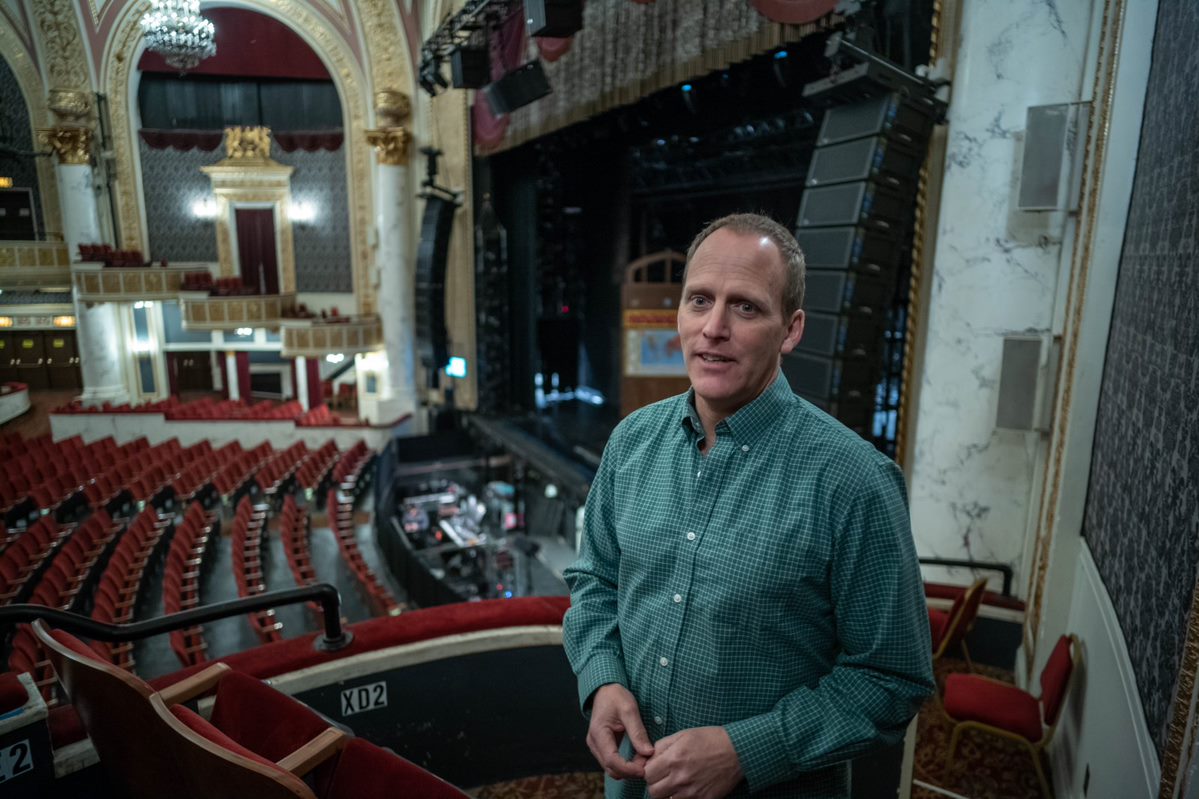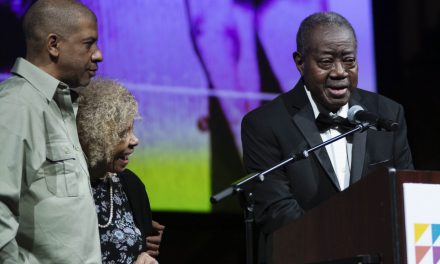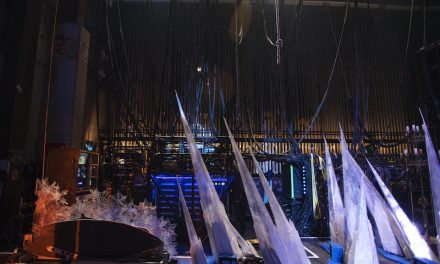Power is not getting to the soundboard at Proctors. Call Dan Sheehan.
Winter melt and torrential rain are flooding Capital Repertory Theatre. Call Dan Sheehan.
One of the cross beams has gone askew on the treadle. You can probably call Dan Sheehan for that, too.
Sheehan is the operations director at Proctors, and increasingly for Proctors Collaborative. He oversees virtually every element of the physical plants at Proctors and Marquee Power in Schenectady, theREP in Albany and Universal Preservation Hall in Saratoga Springs.
His duties for the latter find him at bi-weekly construction meetings, consulting on best methods for making architectural decisions cohere with theatrical necessities from sound reproduction and clear sightlines to loading dock location and air handling for sold-out audiences.
Details. Details. Details.
Sheehan’s got the right head for it.
Born into a musical family north of Boston, partly raised in South Carolina and Burnt Hills, Sheehan, 54, began his professional career in New York City in 1986 as a recording engineer, working with soon-to-be hip hop stars like Keith Sweat, X Clan and Doug E. Fresh. The excitement was real. But after almost five years, he was worn out by the pace of the city.
Returning to the Capital Region in 1990, Sheehan found work with Specialized Audio-Visual Inc., and was soon the “booth boy” at Saratoga Performing Arts Center, mixing sound from the stage for the back of the shed and the lawn. Here, he made sure every patron heard the right blend.
Sure enough, the soundboard was his path to Proctors, first as an independent contractor in late 1991 before becoming full time in fall 1993.
In some ways, Sheehan “found” himself backstage at Proctors. Soon he was learning every technical aspect of showbiz. Not just sound, but lights, sets, safety issues, union rules and more. By 1995, he was production manager, advancing shows, dotting the i’s, crossing the t’s, getting actors to and from housing, monitoring catering… Details.
Sheehan started in the days of executive director Gloria LaMere, when Proctors was still waking up from years of dormancy and learning how to be a functioning venue again. He worked for her successor, Fred Daniels, too.
When Philip Morris arrived in 2002, Sheehan was already helping to plan a massive multi-million-dollar renovation, which would not only transform Proctors and downtown Schenectady, but the entire region, making the 1926 vaudeville house a destination for the biggest touring Broadway shows.
“Every time we had a show here long enough,” Sheehan says, “we would invite the road crew to lunch, and tell them, ‘We want your opinion on how to do this right.’ They’d been through a million buildings, every time wishing someone had asked their thoughts before they built it!”
Morris recognized Sheehan’s true skills and in 2006 assigned him his current position.
“Dan has stretched with us as we’ve grown,” Morris says, “learning how to run three stages, a power plant for downtown Schenectady, a residential theatre in Albany and soon, a concert hall in Saratoga. Less and less, he smirks and hides behind the claim, ‘Hey, I’m just a sound guy.’ He is an operations guy.”
Sheehan is also a living history of the last three decades of Proctors, and he’s a storyteller, too. He can unwrap a yarn about anything from the groundbreaking 2006 run of “The Phantom of the Opera” to rescuing “Jersey Boys” from an electronic glitch.
You should see his eyes light up when he talks about meeting his wife Christine at the Proctors Mardi Gras celebration in 1993—a true Arcade romance. She was an intern then, but like Sheehan, she impressed immediately, rising through the ranks and now heading the organization’s nationally recognized education department. The couple has two children—Arielle, 18, and Gavaen, 8.
Corner him some time to get your own story. But here’s a classic to start.
“To this day, Tom Jones, at Proctors in March 2000, is one of the best concerts I ever saw. The whole night, I’m just flabbergasted by what he’s playing. He gets to ‘It’s Not Unusual,’ which of course is the last song before the encore, and I realize I’ve got to get backstage. So, I go running down aisle six to the pass-through door, fly by all the gear stacked there and hop on to the top step and stop, just as the guitarist starts playing the riff to Lenny Kravitz’s ‘Are You Gonna Go My Way!’
“I’m thinking, ‘man, you have to be kidding me.’ I look up, and Tom’s face is right in my face, seeing my expression as he walks back onstage. I looked at the lighting guy and asked, did I anger him?’ He laughs and says, ‘No, he loves that.’ Man, he tore it up that night!”
By Michael Eck
Proctors publishes The Collaborative. All content featured in the Proctors Collaborative section is written by employees of the organization.





